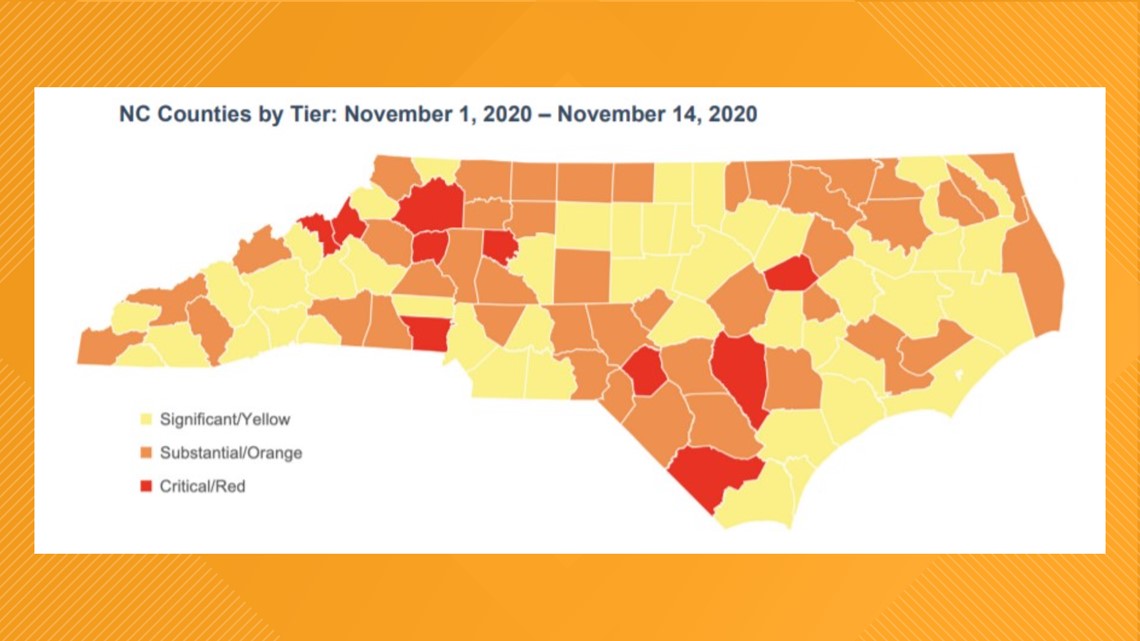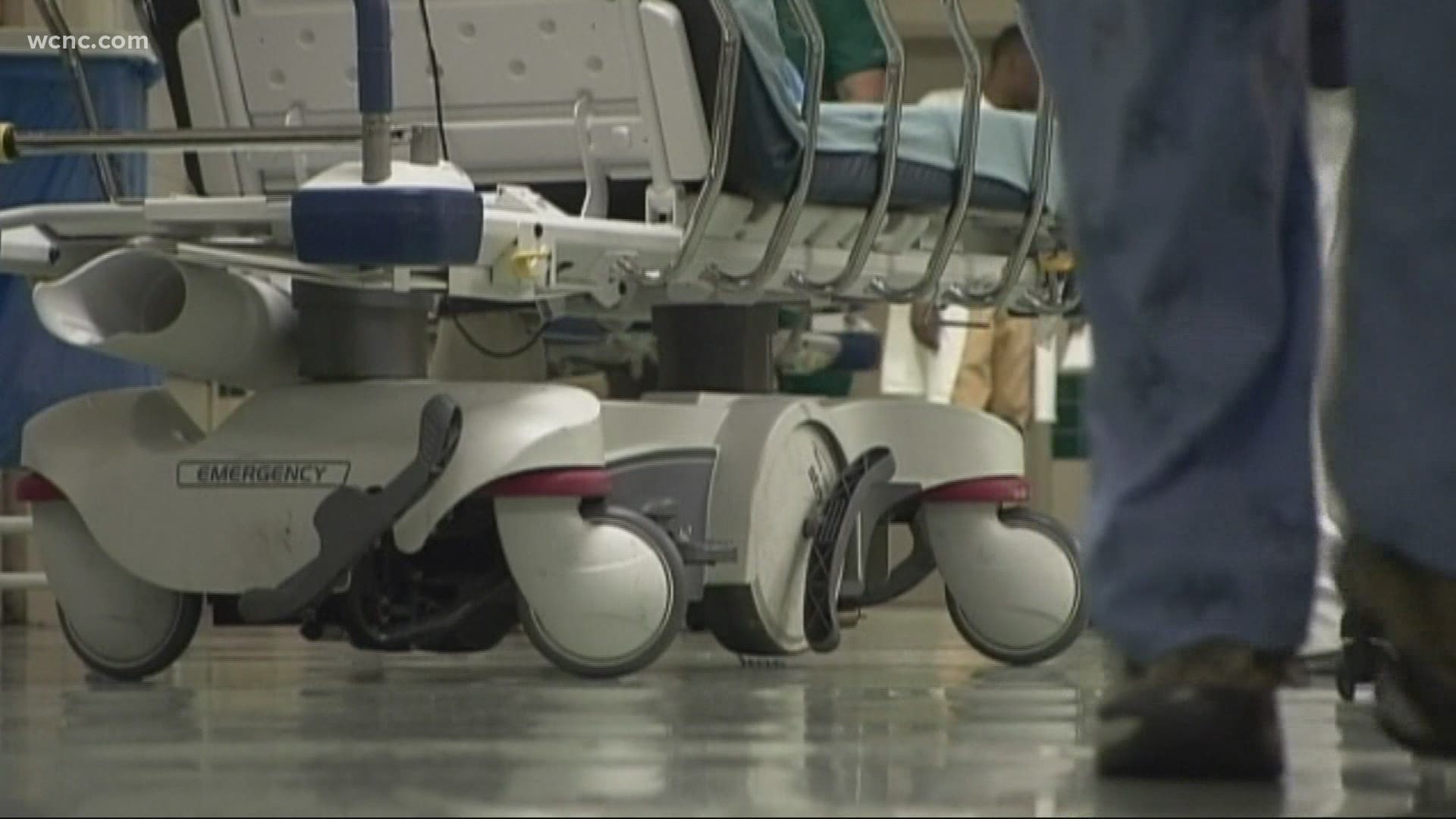AVERY COUNTY, N.C. — Avery County was the last county in North Carolina to report a COVID-19 case. Today, health officials consider it one of the state's hotspots.
According to North Carolina's newly unveiled county alert system, Avery is one of ten in the "red zone," an indication of critical viral spread, a high case rate for the population size, and strain on the local hospitals.
A recent North Carolina Dept. of Health and Human Services report showed that, since September, rural counties, overall, have been seeing nearly double the new coronavirus cases compared to suburban and urban counties.
Appalachian Regional Healthcare System serves the High Country, and primarily Avery County. Hospital officials there report the demand for beds in the system's COVID-19 units has increased greatly over the past three to four weeks.
"In June, July, August, we had two, three, up to five patients in the hospital at any given time," said Rob Hudspeth, Senior Vice President for System Advancement for Appalachian Regional Healthcare System. "So, we felt really good about where we were."
"Three, four weeks ago, we had a significant uptick," Hudspeth said. "We heard about the second wave, and it's here for us. We've had as many as 16 people in our 23-bed unit."


Like other hospital systems, Appalachian Regional has a surge plan, predetermined ways to ease back on other medical procedures and services as coronavirus demands rise.
But in this rural region, the battle is not just about the beds, it can also be about the burnout. Preserving staff is crucial.
"There are only so many critical care-trained professionals that we employ," said Hudspeth. "We did some contract staffing in our COVID unit, and that's helped ease that burden quite a bit."
Staff will continue with their important work, but Hudspeth said they need the community's help too, by staying as healthy as possible.
He recommends masking, social distancing, and handwashing, which are proven methods of slowing the spread of the virus. A flu shot is another important step, he said.
RELATED: Debunking myths about the flu shot
People should also stay on top of medical concerns, not letting them get to the point of needing emergency care, which is another pandemic trend his staff has noted.
"We have to be responsible for each other," Hudspeth said. "That's the main message."
"The fewer people that we have in the hospital, the more that protects our workforce, and the better it allows us to be at taking care of those patients that need to be in the hospital," he said.

